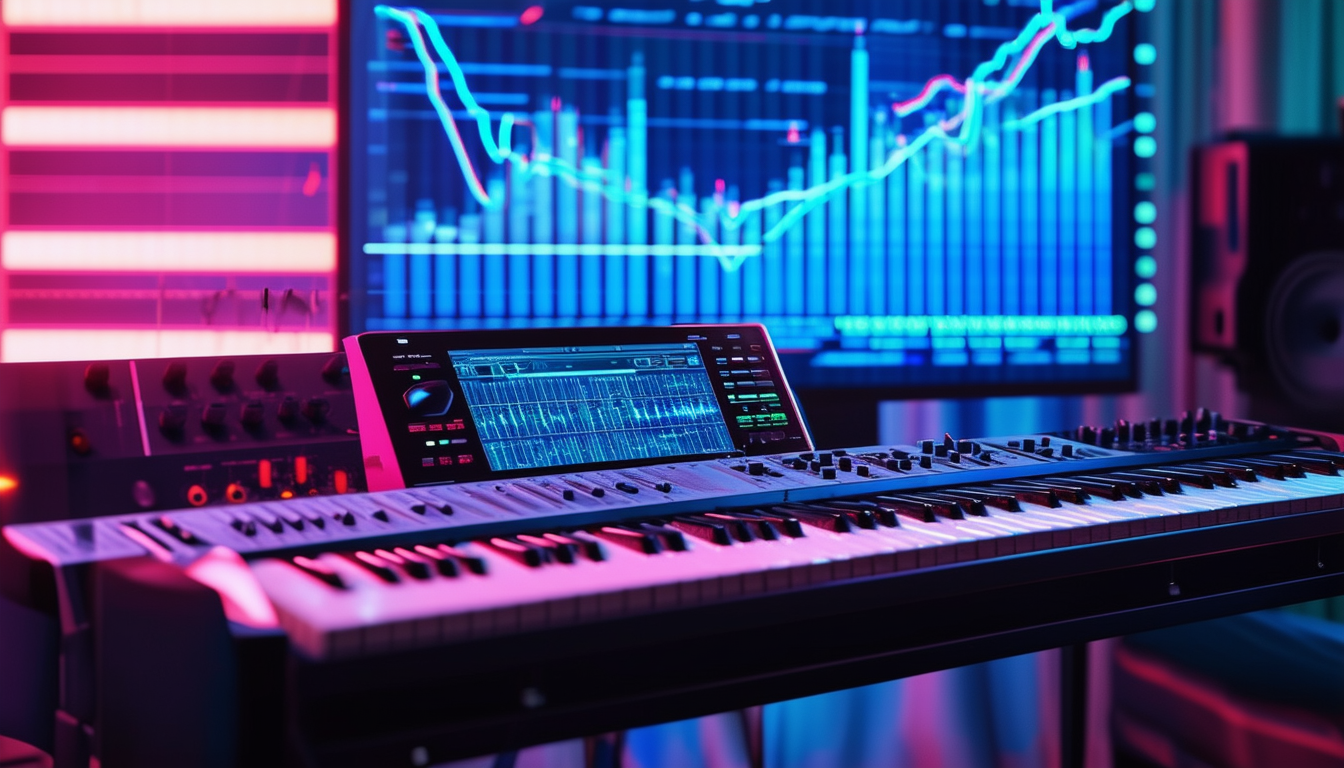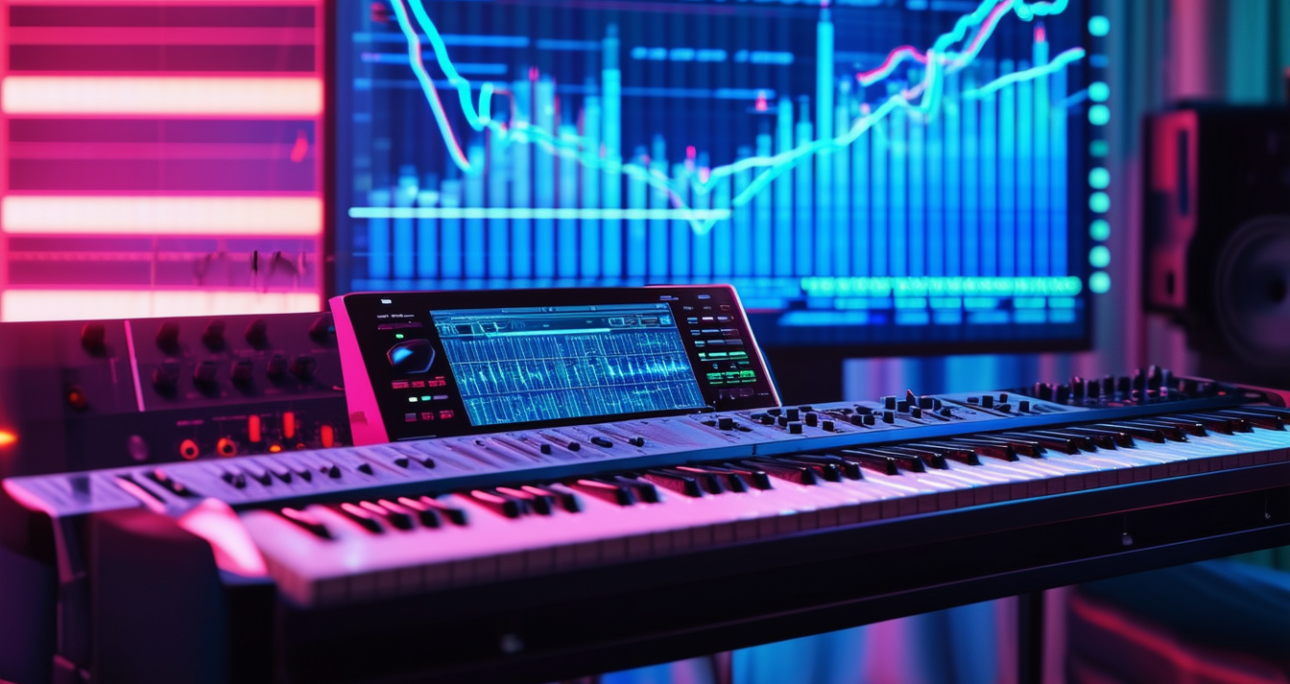
Discover how AI instruments are revolutionizing the music industry, creating new opportunities for innovation and investment.
The Rise of AI in the Music Industry
Artificial Intelligence (AI) has made significant inroads into various industries, and the music sector is no exception. Over the past few years, AI has evolved from a novelty to a powerful tool capable of transforming how music is created, produced, and consumed. With advancements in machine learning algorithms, AI can now analyze vast amounts of data to identify patterns and generate new compositions that rival those created by human musicians.
The integration of AI in music began with simple tasks like music recommendation systems but has since expanded to more complex applications such as composing original scores, mastering tracks, and even performing live. Companies like Spotify and Apple Music use AI to curate personalized playlists, while startups are developing AI-driven software that helps musicians compose and arrange music more efficiently.
How AI Instruments are Changing Music Creation
AI instruments are revolutionizing music creation by providing artists with new tools to enhance their creativity. These instruments leverage machine learning algorithms to generate melodies, harmonies, and rhythms, allowing musicians to experiment with different sounds and styles effortlessly. For instance, AI-powered software like AIVA (Artificial Intelligence Virtual Artist) can compose original pieces of music in various genres, providing a fresh source of inspiration for composers.
Moreover, AI instruments can assist in the production process by automating tasks such as mixing and mastering, which traditionally require significant expertise and time. This not only speeds up the production process but also democratizes music creation, enabling aspiring musicians with limited resources to produce high-quality tracks. As a result, AI is fostering a more inclusive and diverse music landscape.
Investment Opportunities in AI Music Technology
The rapid advancement of AI in music technology presents lucrative investment opportunities. As the demand for AI-driven music tools grows, investors have the chance to support innovative startups and companies that are at the forefront of this technological revolution. The global AI in music market is expected to witness substantial growth in the coming years, driven by the increasing adoption of AI tools by musicians, producers, and streaming platforms.
Investors can explore opportunities in various segments, including AI-powered composition software, music recommendation systems, and AI-driven audio analysis tools. Additionally, venture capital firms are actively seeking to invest in companies that are developing novel AI solutions for the music industry. By investing in AI music technology, stakeholders can capitalize on the expanding market and contribute to the future of music innovation.
Case Studies: Successful AI-Driven Music Projects
Several AI-driven music projects have garnered attention for their innovative approaches and successful outcomes. One notable example is the collaboration between pop artist Taryn Southern and Amper Music, an AI music composition platform. Together, they created ‘I AM AI,’ the first album entirely composed and produced with the help of AI. This project showcased the potential of AI to assist artists in creating unique and compelling music.
Another example is Google’s Magenta project, which explores the role of machine learning in the creative process. Magenta has developed tools like NSynth, a neural synthesizer that generates new sounds by combining characteristics of existing instruments. These case studies demonstrate how AI can enhance the creative process and open up new possibilities for artists, producers, and composers.
Future Trends: What’s Next for AI and Music?
As AI technology continues to evolve, its impact on the music industry is expected to grow even more profound. One emerging trend is the use of AI for real-time music composition and performance. AI algorithms are being developed to interact with musicians during live performances, creating dynamic and evolving musical experiences. This could lead to entirely new genres of music and performance art.
Additionally, AI’s role in personalized music experiences is likely to expand. Future advancements may enable AI to create highly customized tracks tailored to individual listeners’ preferences, moods, and activities. This level of personalization could transform how people consume and interact with music. As AI continues to advance, the music industry will undoubtedly see new innovations that push the boundaries of creativity and redefine the musical landscape.

